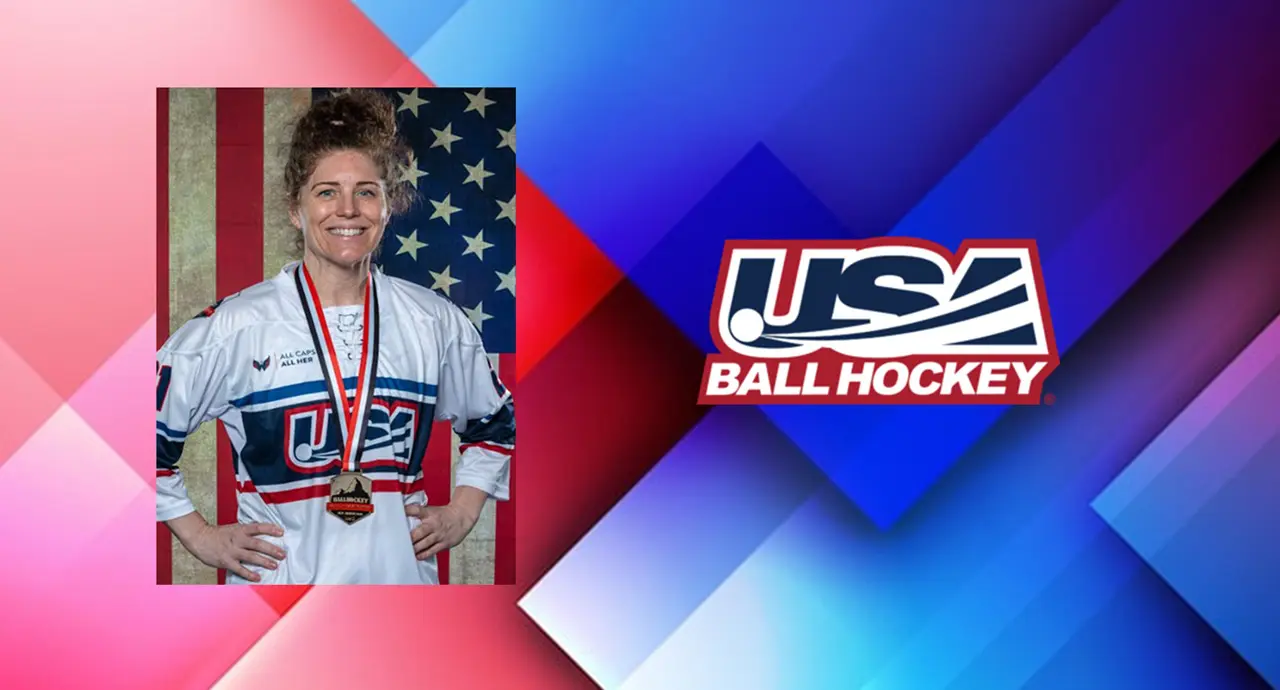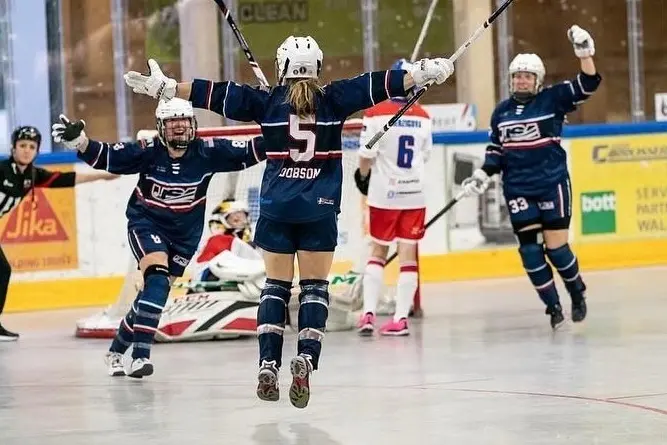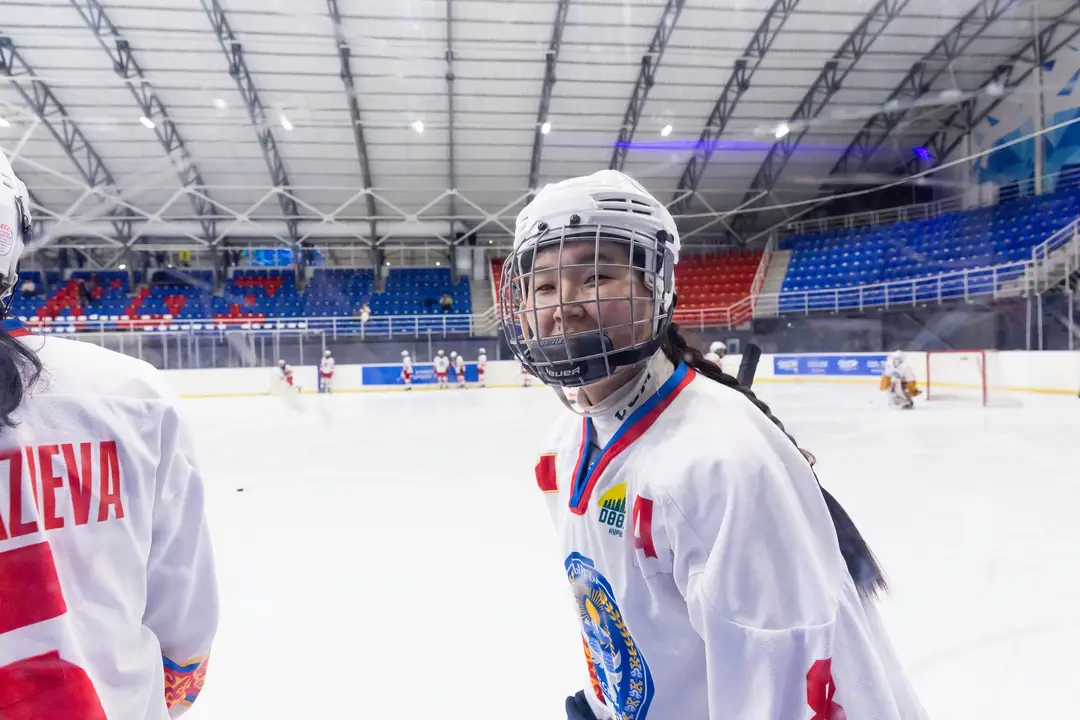 With a strong belief in herself, Robynne Hill has been able to overcome obstacles and establish herself as an elite athlete. Although she suffers from cerebral palsy, she brings bravery and courage to the rink. In addition to her accomplishments in the sled, she has also participated in hand cycling while her club team in wheelchair basketball has competed in national tournaments.
With a strong belief in herself, Robynne Hill has been able to overcome obstacles and establish herself as an elite athlete. Although she suffers from cerebral palsy, she brings bravery and courage to the rink. In addition to her accomplishments in the sled, she has also participated in hand cycling while her club team in wheelchair basketball has competed in national tournaments.
Hill’s sporting roots could be traced back to soccer. At the tender age of 12, her life was altered when pain in her legs was attributed to a nervous system disorder. A series of diseases including Spastic Diplesia Cerebral Palsy, Juvenile Degenerative Disc Disease, and AMPS (Amplified Musculoskeletal Pain Syndrome) have not been able to prevent Hill from engaging in a love of sport.
“Sports have definitely had a great and positive impact on my life! Before playing adaptive sports, I had played able bodied sports. This was before my diagnosis. All my life, I had been involved with sports.
When I was in school, that was very hard for me. I have a learning disability which is Dyslexia. Dyslexia affects me everyday, not just in school. Therefore, sports have been my personal outlet. My middle school years were very hard on me as that was when my physical disability started to have more of an impact of my life with sport. I was at the point where I could not play sports.”
Her first experience with ice sledge hockey was an empowering one as she did not feel any pain in her legs. Able to establish a degree of comfort, she would quickly excel in the sport.
“I got started in sledge hockey from one of my mom’s students. My mom works at a middle school and she is the special-needs teacher. One of her students had to do a project and he chose to do sled hockey. When my mom helped him do some research, she thought that would be a great sport for me to try. So I went to one of the practices and I fell in love with the sport!”
She would prove to be an immediate success in the sport, mounting the sled with Colorado Avalanche (Avs) sled hockey organization. Starting with their junior team, known as the Lil’ Avs, she would capture second place at the 2012 National Disabled Fest. One year later, a Silver Stick tournament in Indiana would see Hill and the Lil’ Avs capture third place.
Adaptive sports would become a refuge for Hill, a positive place where she could regain her confidence and continue to build her self-esteem. As Hill reflects on adjusting to life with the difficult reality of AMPS, the key theme was one of freedom,
“I had no clue that there was this world of adaptive sports until my mom found out about sled hockey. Before finding sled hockey, I was very depressed and struggled even more in school. I needed sports back in my life. So, that first practice of sled hockey was the best feeling in the world. I felt free and I no longer felt like I had any struggle in my life.”
Qualifying for the US national team in 2013, her first experience involved a journey to Norway, enjoying an undefeated performance. Of note, she was not the only Avs player to be named to the US national women’s team.
Joining her was Abby Hess, who was named to the national team as an alternate. Their careers gained encouragement by two other prominent members of the Avs. As Hill began to play for the Avs Adult B sled hockey team, calling The Edge Ice Arena their home rink, star players such as Tyler Carron and Nikko Landeros were essential. Both members of the men’s national team, they were key influences in helping to shape her confidence.
Taking into account that she would also be part of the US roster that captured the gold medal at the inaugural IPC World Championships in 2014, Hill attained a pinnacle that reflected her character and resiliency. Perhaps the most impressive fact was that such accomplishments took place while Hill was still in high school. Considering that Hill also managed wheelchair basketball and a grueling academic schedule, she is a shining example of what can be accomplished when the disabled members of the community can be given the tools to achieve their goals.
“During my senior year of high school, I would travel for my club hockey team at home, the national team, and also play with my wheelchair basketball team. Being dyslexic, school was already hard, so I wanted to prove I can do my sports and get all A’s. It was hard, but having the support of my teams and my teacher showed me how to be responsible and grow to be independent.”
Donning number 30 while serving as a member of the national team’s blueline corps, Hill remains ambitious, seeking new goals. Among them is the chance to add to the growing history of women’s ice sledge hockey, hoping for a chance to don the USA jersey at the 2018 Pyeongchang Winter Paralympic Games, where the sport shall be showcased for the first time.
Despite its status as a demonstration sport, it remains a milestone, one that Hill ponders with tremendous excitement. While Hill reflects proudly on the positive impact that ice sledge hockey has provided, it becomes evidently clear that such impact extended far beyond the rink. Sport served as a portal where Hill emerged with a sense of capability, able to take on any challenge with vigor and the certainty that the final outcome would be one of triumph.
In a time when a growing number of female able-bodied athletes are finally getting their due as sports heroes and role models, individuals like Hill represent the great potential for disabled female athletes to gain the same status.
“Playing sled hockey for four years now has been a great positive impact on my life. I got to try other adaptive sports too, such as wheelchair basketball, hand-cycling, and mono-skiing. Sports in my life have helped me keep my grades up in school.
With my dyslexia, school was hard a lot of the time, so when I had a practice or a tournament to attend, I was able to get my mind off of things and play sport. When I would go back to school afterwards, I felt great and felt I could overcome my dyslexia.
Through hockey, I have been able to meet new people and even tryout for the USA Women’s National sled hockey team. This first happened when I was a junior in high school and I not only made the team, I have been on the team since. This marks my third season on the national team. Being part of this, I have matured and grown a lot, learning to be independent too, which was a huge impact on my life.”
“All quotes obtained first hand unless otherwise indicated”
Image obtained from Twitter: https://twitter.com/31robynne
[adrotate group=”1″]
Related Articles
Categories
Recent Posts
[adrotate group=”2″]




